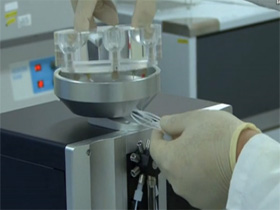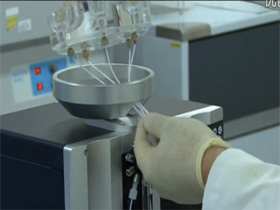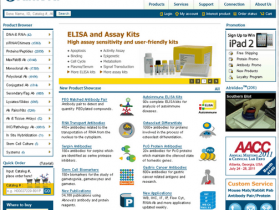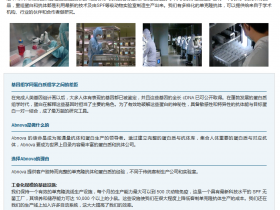Abnova Corporation announced today it has been granted a worldwide exclusive license of the patented cell-surface vimentin (CSV) monoclonal antibody from MD Anderson Cancer Center, United States for the development and commercialization of cancer-specific circulating tumor cells (CTCs) in vitro diagnostics (IVD) across all cancers. Abnova has so far vertically integrated the development and GMP manufacturing of bioreagents, high-throughput automations (CytoQuest™ CR, CytoQuest™ Dx, CytoBot™), and high-content software for isolation and analysis of CTCs. Integration of CSV monoclonal antibody into its technological platform catapults Abnova as a formidable contender and provider of CTC products and services in the global precision medicine market.
Current FDA-approved CTC testing utilizes EpCAM and PanCK as surrogate epithelial cell markers for the identification of CTCs in patients with preexisting metastatic cancers. This approach has several shortcomings. Inflammation of epithelial tissues and contamination of skin epithelial cells during CTC blood draw could lead to the false positive findings. CTCs which undergo epithelial-mesenchymal transition (EMT) have decreased or no EpCAM expression. EpCAM and PanCK positive CTCs do not reflect the inherent malignancy, transformation, and metastasis potential of the primary cancer. On the other hand, CSV is a cancer-specific marker expressed in both epithelial and mesenchymal cancers including cancer stem cells (CSCs). Identification of CSV positive CTCs is directly related to EMT, metastasis, drug resistance, and disease relapse¹. As such, CSV monoclonal antibody is a central gatekeeper in multitudes of clinically essential and unmet applications of CTCs, EMT CTCs, and CSCs.
Dr. Arun Satelli and Dr. Shulin Li of MD Anderson Cancer Center discovered the role of CSV as a cancer-specific CTC marker. Vimentin overexpression is a well-known biological event associated with EMT, a process wherein the cells gain increasing invasion and metastatic potential via transition from epithelial to mesenchymal phenotypes. Intracellular expression of vimentin in normal mesenchymal cells, including most of the white blood cells (WBCs), limits its usage as a CTC marker. Unlike intracellular vimentin, CSV expression is mainly associated with cancer cells and was found in both epithelial and mesenchymal cancers with broad applicability. A distinct cancer-specific marker, especially cell surface, cancer-specific marker, has been intensely sought by basic and clinical research and medical communities for some time without success. CSV clinical applications encompass not only diagnostics but also therapeutics, especially the growing realm of rapidly advancing immunotherapies.
Cancer is a growing scourge as about 11 million people are being diagnosed with cancer every year, with projected 16 million new cases every year by 2020. Global circulating tumor cell market is expected to reach $8.9 billion USD by 2018². Noninvasive detection of CTCs represents an important paradigm shift in precision medicine. CTCs can be readily accessed for real-time analysis of cancer patient’s complete yet changing protein and gene profiles. Most importantly, actionable biomarker-driven applications such as CSV are needed to accurately diagnose and predict metastasis and relapse, select appropriate drug and/or surgical treatments, and monitor their response and resistance.
1. Mitra A, Mishra L, Li S. EMT, CTCs and CSCs in Tumor Relapse and Drug-Resistance. Oncotarget 6(13): 10697-10711, 2015.





